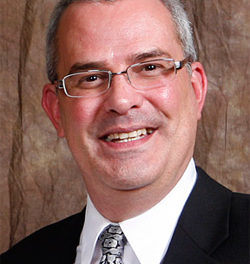Eight leading event industry associations and their leadership joined forces to respond to current efforts to establish congressional oversight of the meetings and events industry.
With the U.S. Travel Association serving as a central voice for associations and other interested parties that may be impacted by this legislation, a joint press release was distributed from these associations as a response to current efforts to establish congressional oversight of the meetings and events industry.
This occurred concurrently when the MPI MeetDifferent conference in Atlanta, February, 2009. There, Roger Dow, president and CEO of the U.S. Travel Association, and Christine Duffy, president and CEO of Martiz Travel, St. Louis, discussed this issue in depth as part of the opening general session with finance expert Terry Savage (see video – note: it may take time to download, 51MB windows media file; video begins with AIG clip on Larry King, and MPI opening general session begins about two minutes into the video).
Best Practice Guidelines
In his message, Dow emphasized the importance of the welfare of the industry, its employee base and the economic health of the communities where meetings and events are held.
In a press release, Dow stated, “Working collaboratively, associations representing the meetings, events and incentive travel industries are addressing an urgent public need by developing clear, prudent guidelines for companies that have received taxpayer dollars.”
To proactively address the potential legislation, industry leaders gathered and developed a “Model Board Policy for Approval of Meetings, Events and Incentive/Recognition Travel.”
These guidelines address conferences, events and employee recognition events for recipients of emergency government assistance. Highlights include:
- Conferences or events with a cost exceeding $75,000 must be supported by a written business case identifying a specific business purpose and positive return on objective and investment metrics;
- At least 90 percent of incentive program attendees shall be other than senior executives (as defined by Treasury Department guidelines) from the host organization; and
- Total annual expenses for meetings, events and incentive/recognition travel shall not exceed 15 percent of the company’s total sales and marketing spend.
Congressional Activities That Triggered the Announcement of Events Guidelines
The U.S. Department of the Treasury issued restrictions on executive compensation on February 4, 2009, requiring boards of directors to adopt company policies relating to the approval of luxury expenditures by the chief executive, and to post expenditure policies on their web sites.
Further, U.S. Senator Dianne Feinstein (D, CA) and nine co-sponsors on January 6, 2009, introduced S.133 Troubled Asset Relief Program Transparency Reporting Act. This is a bill to prohibit any recipient of emergency Federal economic assistance from using such funds for lobbying expenditures or political contributions, to improve transparency, enhance accountability, encourage responsible corporate governance and for other purposes.
In it, S.133 specifically states guidelines for recipients of emergency economic assistance — i.e., recipients of the troubled asset relief program (TARP) — must adopt guidelines as it relates to each of the following:
- the hosting, sponsorship, or payments for conferences and events;
- the use of corporate aircraft, travel accommodations, and travel expenditures;
- expenses relating to office or facility renovations or relocations; and
- expenses relating to entertainment, holiday parties, employee recognition events, or similar ancillary corporate expenses.
Financial Impact of the Meetings and Events Industry
It’s relevant to outline the benefits of the meeting and events industry for those who may not have a close understanding of the scope of this industry. Some interesting facts and perspectives shared by the U.S. Travel Association:
- Meetings and events are responsible for 15 percent of all travel-related spending.
- Meetings and events create nearly $40 billion in tax revenue at the federal, state and local level.
- Meetings and events generate more than one million jobs.
- Without the jobs generated by meetings, events and incentive travel, the current unemployment rate of 7.6 percent would rise to 8.2 percent and cost the average American household an additional $136 in taxes annually (data published on February 9, 2009).
- U.S. Commerce Department data predicts a loss of 247,000 travel related jobs in 2009 (the U.S. Department of Labor identified a loss of 200,000 travel related jobs in 2008).
Industry Associations That Support the Guidelines
The intent of the industry associations is to provide stringent, transparent standards in place so that policymakers and the business community may recognize and embrace these business activities as responsible, economic stimulants.
The associations that signed off on the guidelines include the following:
- American Hotel and Lodging Association
- Destination Marketing Association International
- International Association of Exhibitions and Events
- Meeting Professionals International
- National Business Travel Association
- Professional Convention Management Association
- Society of Incentive & Travel Executives (SITE)
- U.S. Travel Association
Originally Published February 2009


